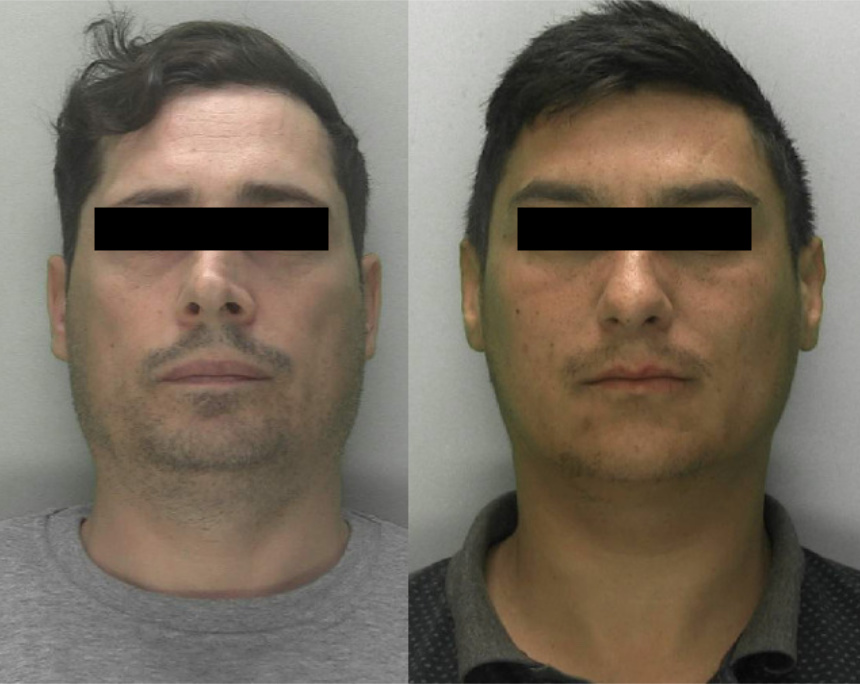Coin Dealer Robbed: Why We Lose More Than Just Money When We Are Burgled
by Daniel Baumbach
Two men were recently convicted of a burglary they committed in Northamptonshire in March 2024. They targeted a coin dealer, whose address they had discovered using a trick. They stole coins worth £500,000. In a report, Northamptonshire Police explain how perfidious the perpetrators’ actions were and what consequences the crime has for them and their victim.
Content
The Preparations
The two convicts, Clinton B. (43) and Albert J. (40), are said to have planned the crime together with other men between January and March of last year. Their target was a coin dealer’s home, but first they had to find out where it was. Clinton B., one of the gang members, therefore arranged a meeting with the victim under the pretext of wanting to sell him a private coin collection.
They arranged to meet in a café belonging to a large chain. To gain the dealer’s trust, the perpetrator presented him with eight gold sovereigns, which the dealer bought on the spot for cash. The perpetrator and the victim then agreed to meet again to examine a larger collection.
However, the meeting only served as a distraction. While Clinton B. and the coin dealer were sitting in the café, an accomplice placed a tracker on the dealer’s car to find out where he lived. Such trackers are no longer the stuff of secret agents’ dreams, but can be bought cheaply from large online retailers.
The Crime
Two weeks later, at around 3 a.m. on 11 March 2024, four masked burglars broke into the house of the coin dealer through a window. The dealer and his wife were sleeping upstairs. The burglars stole coins worth £500,000, including the eight gold sovereigns that Clinton B. had sold to the dealer.
Woken by noises in the house, the dealer pursued the burglars and tried to stop their getaway car. One of the perpetrators stabbed him in the leg with a knife and he had to give up the chase. The burglars escaped, but the victim managed to memorise the number plate of the getaway car.
The Trial
Northamptonshire Police launched an investigation and arrested several individuals. Clinton B., who had met the dealer in a café, was charged with conspiracy to commit burglary. After a ten-day trial at Gloucester Crown Court on 14 February this year, he was found guilty. Albert J. was also charged with conspiracy to commit burglary. He pleaded guilty on 30 January. A third man, aged 46, who was also charged with conspiracy to commit burglary, was found not guilty following a trial.
The two men were sentenced on 14 March. Clinton B. was sentenced to seven years and six months in prison, while Albert J. was sentenced to six years and four months. Neither man is said to have shown any remorse for their actions.
Happy End?
So, has good triumphed? Has everything returned to normal for the coin dealer after the burglary? Unfortunately, not at all.
Let us start with Clinton B. He appeared in court until the penultimate day of the trial, but then he suddenly went into hiding. The police press release does not make it clear exactly how this happened. An arrest warrant has been issued for the fugitive.
It also seems likely that at least two of the perpetrators will escape unidentified. Perhaps one of them is hiding the loot. The stolen coins, worth £500,000, have not yet been recovered, and the investigation into their whereabouts is ongoing.
The burglary had devastating consequences for the dealer and his wife. According to the police report, the crime has caused them financial hardship. Furthermore, they no longer feel safe in their home after the crime. Financial problems combined with constant fear led to them having to sell their home.
Burglaries Destroy Lives
This is not an isolated case. Often, a burglary means that victims cannot go back to living a normal life in their home. A survey of burglary victims in Germany revealed that, even a year after the crime, 46.5% of them no longer feel safe in their home. 42.2% said that they felt powerless and helpless, and suffered from anxiety or sleep disorders. 9.7% of respondents felt so unsafe that they had to move elsewhere. A further 14.8% would like to move but cannot afford to. The researchers were even able to identify signs of post-traumatic stress disorder (PTSD) in 3.2% of those surveyed.
And that is why such acts destroy the lives of their victims far beyond the material value of the loot.








